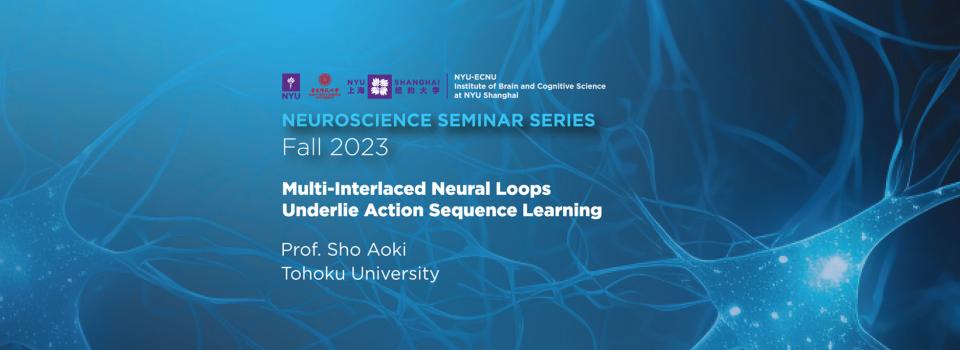
Host: Prof. Xin Jin, East China Normal University
Abstract
Action sequencing allows us to acquire novel actions and its deficits are a hallmark of neuropsychiatric diseases. Though extensive studies show that striatum plays a pivotal role in sequence learning, little is known about how the striatum cooperates with other interconnected brain areas during this learning. Combining a high-throughput, loss-of-function strategy by viral targeting with ex vivo and in vivo electrophysiology in mice, we comprehensively investigated roles of specific cell-types and pathways across cortico- and thalamo-basal ganglia circuity and identified multiple loops essential for action sequence learning. Along with the striatum and nigrostriatal dopaminergic input, we found that the striatal direct pathway, substantia nigra pars reticulata, and parafascicular thalamus form a subcortical loop critical for initial learning in which mice learn how to initiate and terminate an action sequence. The cortico-basal ganglia loop becomes more engaged in late learning when the largely learnt sequence is being refined. These findings unveil an entire picture of neural circuitry for sequence learning, wherein multiple neural loops necessary for this learning are widely distributed and engaged in a chronologically, functionally specific manner. We thus provide fundamental insights into how organisms acquire novel actions and how this capacity can be compromised in neuropsychiatric diseases.
Biography
Prof. Sho Aoki completed his PhD at the University of Tokyo (2010-2013) and had visiting research at Erasmus Medical Center Rotterdam (2012-2013). After PhD, he had opportunities of postdoctoral training at Okinawa Institute of Science and Technology (2013-2017) and later in Xin Jin’s lab at Salk Institute for Biological Studies (2018-2022). He is currently an assistant professor at Graduate School of Life Sciences, Tohoku University, Japan. His research focuses on neural mechanisms for actions, particularly on motivational control of action vigor, flexible control of action sequences, and adaptive control of decision-making.


